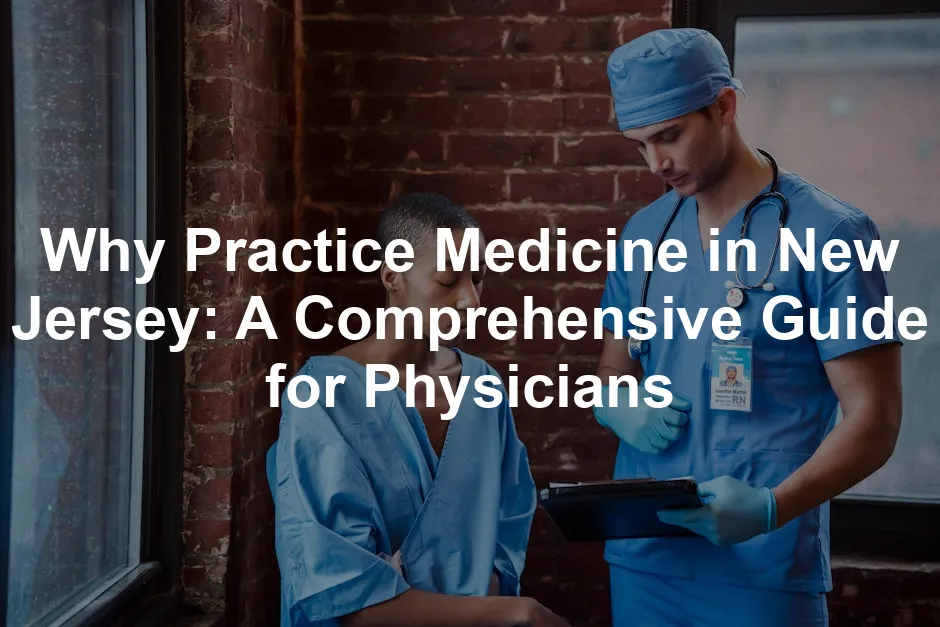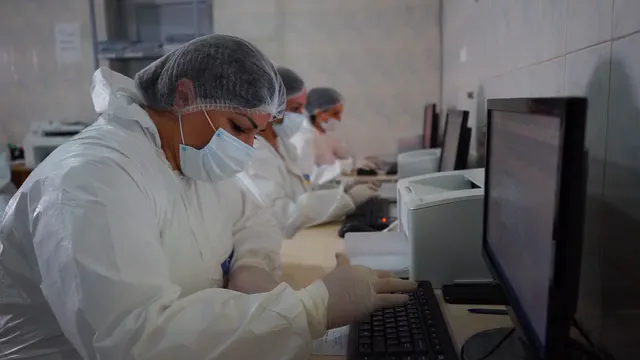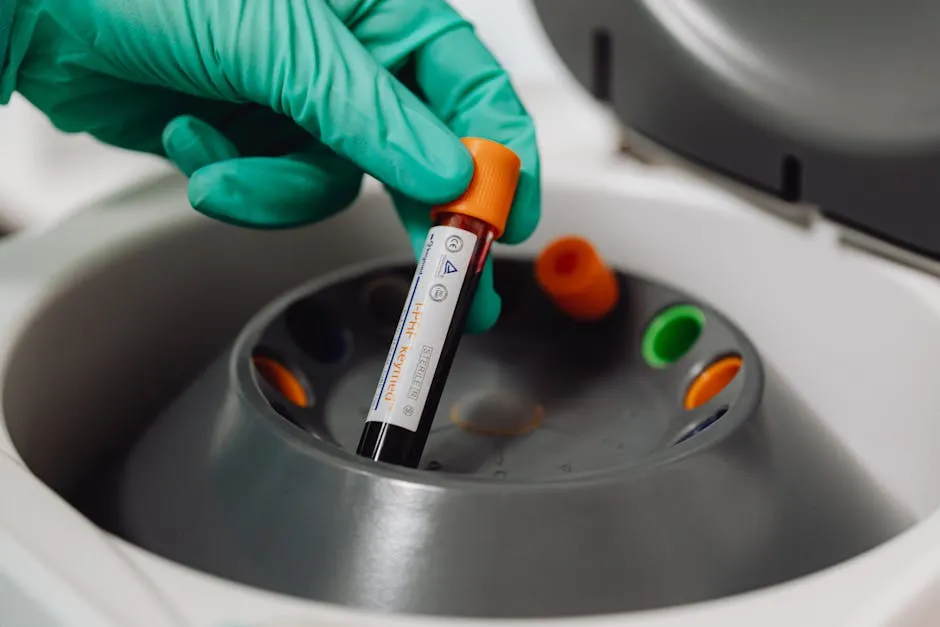
Why Practice Medicine in New Jersey: A Comprehensive Guide for Physicians
Introduction
Ah, New Jersey! The Garden State, known for its delightful tomatoes, but let’s not forget about its rich healthcare opportunities. While some may think it’s all about the traffic and the diners, there’s a whole world of medical practice waiting for you here.
Sure, New Jersey faces its fair share of critiques, especially in the healthcare landscape. Reimbursement rates might resemble your favorite roller coaster—up and down with dizzying speed. But fear not! There are unique advantages sprinkled throughout the state that make practicing medicine a worthwhile endeavor.
In this guide, we won’t just skim the surface. We’ll dig into the delightful and challenging aspects of practicing medicine in New Jersey. Get ready to uncover the diverse patient population, the hurdles of high operating costs, and the opportunities for career growth and community impact. Buckle up, because this journey will be both informative and entertaining!

Summary
In this exploration of practicing medicine in New Jersey, we’ve highlighted key points that will leave you pondering. First, the state boasts a remarkably diverse patient population. Treating a variety of cases is akin to being on a medical adventure every day!
However, practicing here is not without challenges. Low reimbursement rates, high operational costs, and a competitive landscape can be daunting. Yet, despite these hurdles, New Jersey presents opportunities for career advancement and the chance to make a tangible impact in communities that need it the most.
As we wrap up this section, remember the unique benefits that New Jersey’s healthcare environment offers. The demand for new physicians is on the rise, and with it comes the chance to be part of something bigger. So, keep reading to find out why this state might just be the ideal place for your medical career!

Current Challenges for Physicians
Practicing medicine in New Jersey is like riding a roller coaster without a seatbelt. The thrill is there, but the safety? Not so much. According to WalletHub, New Jersey ranks a dismal 48th for opportunity and competition for physicians. This includes a 41st place finish for average physician salaries. It’s a tough pill to swallow—especially for those with hefty student loans averaging around $190,000.
The primary care crisis is another cloud looming over New Jersey. The state has roughly 17 primary care physicians for every 100,000 people, which is significantly lower than the national average. The problem? Low reimbursement rates. Medicaid pays about half of what Medicare does, forcing many primary care doctors to leave the state. This shortage not only complicates patient care but also jeopardizes physician retention.
Larry Downs, CEO of the Medical Society of New Jersey, sums it up well: “New Jersey is a very expensive place to practice medicine.” With such challenges, it’s no wonder physicians are feeling the strain.

But if you’re feeling overwhelmed by all this, fear not! A handy set of Medical Terminology Flash Cards can help you brush up on your knowledge, making sure you’re ready to tackle those tough conversations with patients! Knowledge is power, after all.
Opportunities for Growth
But wait! New Jersey isn’t all doom and gloom for physicians. The state is investing in healthcare like it’s going out of style. Recent initiatives include the establishment of new medical schools, which aim to boost the number of qualified healthcare professionals. This is a golden opportunity for career advancement in a state that has diverse medical needs.
New Jersey also has programs designed to improve access to care, particularly in underserved areas. For example, health professionals can benefit from loan redemption programs that offer up to $120,000 over four years in exchange for serving in high-need regions. With an ever-growing demand for healthcare services, practicing medicine in New Jersey offers a unique chance to make a real impact on the community.
In summary, while the hurdles are high, the opportunities for growth are equally enticing. Whether it’s through new educational programs or financial incentives, New Jersey is gearing up to address its healthcare challenges head-on.

And speaking of education, if you’re looking for an edge in your medical school applications, consider grabbing The Complete Guide to Medical School Admissions. It’s like having a roadmap to navigate the winding path of medical school applications!
Innovations and Technology
New Jersey is buzzing with medical innovations! The state has embraced cutting-edge technology in patient care. Telemedicine is on the rise, allowing doctors to consult with patients from the comfort of their own homes. This not only saves time but also broadens access to care.
Moreover, New Jersey boasts advanced electronic health record (EHR) systems. These tools streamline patient information sharing among providers. Imagine a world where your doctor can access your medical history with a few clicks! This efficiency enhances care coordination and reduces errors.
Additionally, New Jersey’s healthcare landscape is rich in research initiatives. The state hosts numerous clinical trials, giving patients access to groundbreaking treatments. From cancer therapies to rare disease studies, the opportunities for innovation are endless. Practicing in New Jersey means being at the forefront of medical advancements!

And speaking of advancements, every physician needs a reliable stethoscope. It’s not just a tool; it’s your trusty sidekick in the battle against misdiagnosis!
Community Impact
Practicing medicine in New Jersey isn’t just about treating patients; it’s also about making a difference! Many physicians have the chance to work in underserved areas, where healthcare access is limited. Programs like loan redemption for practitioners are designed to incentivize doctors to serve these high-need regions.
These initiatives can offer up to $120,000 in loan forgiveness over four years. This is a win-win! Physicians can alleviate their student debt while providing essential care to communities that desperately need it. It’s not just about practicing medicine; it’s about creating lasting change in the lives of patients and families.
Moreover, serving in these areas fosters community relationships. Physicians become pillars of support, often facing unique challenges and triumphs alongside their patients. By choosing to practice in New Jersey, you’re not just building a career; you’re uplifting entire communities!

Licensing and Regulations for New Jersey Physicians
Overview of Licensing Requirements
Getting your medical license in New Jersey is no walk in the park. It’s more like a marathon, complete with hurdles and a few detours. First, you’ll need to graduate from an accredited medical school, whether it’s in the U.S. or abroad. Remember that little detail about international medical graduates? They have to jump through a few extra hoops.
Next up, you must pass the United States Medical Licensure Examination (USMLE). This three-step exam tests your knowledge and skills. You’ll start with Step 1, which focuses on basic sciences. Then, Step 2 will assess your clinical knowledge. Finally, Step 3 evaluates your ability to apply that knowledge in real-life patient care scenarios.
Once you conquer those exams, it’s time for residency. You’ll need at least three years of postgraduate training. The exact duration depends on your specialty. After completing your residency, you’ll apply for a license through the New Jersey Board of Medical Examiners. This board covers everything from background checks to verifying your education.
Finally, you’ll need to keep your license active. New Jersey requires physicians to complete continuing medical education (CME) credits. This ensures that you stay updated on the latest practices and technologies.

Corporate Practice of Medicine Rules
Now, let’s talk about the Corporate Practice of Medicine (CPOM) laws in New Jersey. These rules might feel like a maze, but they’re designed to protect patient care from profit-driven decisions. Essentially, CPOM prohibits unlicensed individuals from practicing medicine or controlling medical practices.
In practice, this means that medical corporations must be owned and operated exclusively by licensed physicians. You can’t just set up a practice with your buddy who has a knack for business but no medical training.
The New Jersey Board of Medical Examiners enforces these regulations. They aim to ensure that medical decisions are based on patient needs, not corporate interests. Violating CPOM can lead to serious repercussions, including the potential for hefty fines and repayment of all disbursed funds from insurance companies.
So, if you plan to start a practice in New Jersey, keep in mind that your business structure must comply with CPOM laws. This typically involves forming a Professional Corporation (PC) or a Professional Limited Liability Company (PLLC) solely comprised of licensed physicians.

Special Considerations for International Medical Graduates
International Medical Graduates (IMGs) face unique challenges when seeking to practice in New Jersey. First, they must obtain certification from the Educational Commission for Foreign Medical Graduates (ECFMG). This involves validating their medical education credentials.
Next, IMGs must pass the USMLE, just like their U.S.-trained counterparts. After that, they must complete a residency program accredited by the Accreditation Council for Graduate Medical Education (ACGME). This step is crucial for familiarizing themselves with the U.S. healthcare system.
Fortunately, New Jersey offers resources to help IMGs navigate this process. Organizations like Upwardly Global provide guidance on licensing, job placement, and networking opportunities. Additionally, many hospitals in New Jersey actively seek IMGs to fill gaps in their workforce, particularly in underserved areas.
Although the journey can be daunting, IMGs play a vital role in enhancing the diversity of New Jersey’s medical community. Their unique backgrounds and experiences enrich patient care and help address the state’s physician shortage.
In summary, while the process of obtaining a medical license in New Jersey can be complex, support systems and resources are in place to help aspiring physicians succeed. Whether you’re a U.S. graduate or an IMG, New Jersey’s landscape offers exciting opportunities to contribute to the healthcare community.

Conclusion
Practicing medicine in New Jersey is a mixed bag of experiences. On one hand, the state offers a vibrant, diverse patient population, making each day an opportunity for a new adventure in healthcare. You’ll encounter a wide range of cases, from the common cold to complex chronic conditions, all amidst a backdrop of rich cultural diversity.
However, it’s not all sunshine and rainbows. New Jersey ranks poorly in terms of reimbursement rates, which can be a significant hurdle for many physicians. The challenges of high operational costs and a competitive landscape can make it feel like you’re trying to scale Everest without a sherpa. Many primary care doctors are leaving the state, exacerbating the existing healthcare crisis.
Despite the struggles, the opportunities are substantial. The state is actively investing in its healthcare system, with new medical schools and initiatives aimed at improving access to care. For those willing to brave the challenges, New Jersey offers a chance to make a profound impact on communities in need. The loan redemption programs for physicians who serve in underserved areas are particularly enticing.

As you weigh your options, consider what you value most in your medical career. New Jersey may not be the easiest place to practice, but it is certainly a location where your work can lead to meaningful change. Share your thoughts or experiences about practicing in New Jersey! Your insights could help aspiring physicians navigate this complex but rewarding landscape.
And hey, if you’re looking to stay organized amidst all this chaos, a good planner for busy professionals can make all the difference. After all, who doesn’t love crossing things off a to-do list?
FAQs
What are the average salaries for physicians in New Jersey?
The average physician salary in New Jersey varies by specialty. For example, family practitioners earn around $214,370, while anesthesiologists can make about $271,440 annually. Keep in mind that these figures are influenced by the high cost of living in the state.
How does New Jersey’s healthcare system differ from other states?
New Jersey’s healthcare system has unique patient demographics, with a high percentage of foreign-trained doctors. This diversity enriches patient care but also highlights challenges like low reimbursement rates, especially from Medicaid, which pays significantly less than Medicare.
What support programs are available for new physicians?
New Jersey offers several support programs, including loan forgiveness for eligible health professionals willing to work in underserved areas. These programs can provide up to $120,000 in loan redemption over four years, making it easier for new physicians to start their careers.
Are there specific challenges for foreign-trained doctors in New Jersey?
Yes, foreign-trained doctors may face hurdles such as complex licensing processes and cultural adjustments. However, support organizations like Upwardly Global help navigate these challenges by offering resources and networking opportunities.
What is the future of healthcare in New Jersey?
The future of healthcare in New Jersey looks to address the ongoing physician shortage and improve access to care. Upcoming trends include potential policy changes aimed at increasing Medicaid reimbursement rates and expanding primary care services. These initiatives could reshape the healthcare landscape positively.
Please let us know what you think about our content by leaving a comment down below!
Thank you for reading till here 🙂
And remember, when it comes to self-care, nothing beats a good essential oil diffuser to create a calming atmosphere while you unwind after a long day of medical practice!
All images from Pexels




